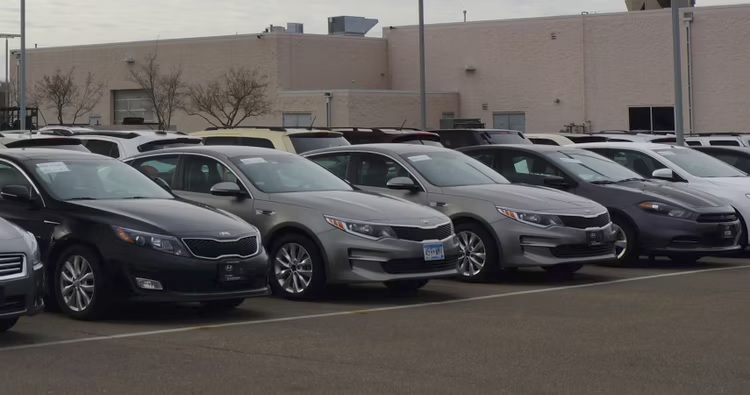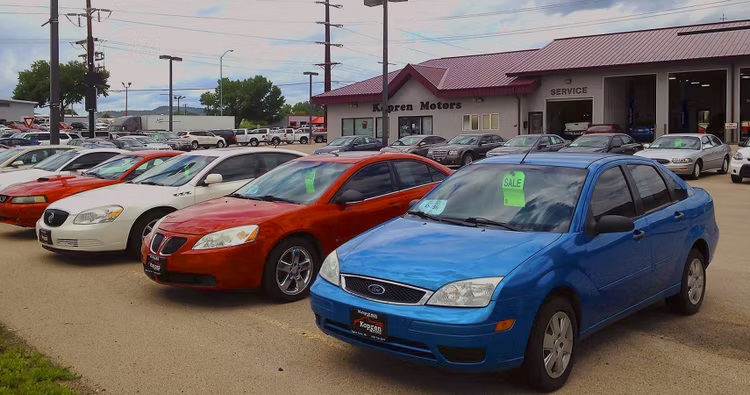With a financial crisis and the rise in inflation, dealerships are having to lower the price of used cars, with SUVs and luxury cars hit hardest.
The recent years look more like a Hollywood play than a reflection of reality. We had to deal with the global COVID-19 pandemic, which led to problems with the supply chain, semiconductor shortage, delays, and then we had a financial crisis followed by inflation.
The recent years look more like a Hollywood play than a reflection of reality. We had to deal with the global COVID-19 pandemic, which led to problems with the supply chain, semiconductor shortage, delays, and then we had a financial crisis followed by inflation. Furthermore, several States are currently dealing with natural disasters like wildfires, floods, hurricanes, and drought, which has made the situation worse. Naturally, these calamities have raised the price of food and utilities. In the automotive industry, last year, pre-owned car values appreciated more than 40 percent. But it appears that there’s finally some positive news in sight for car buyers, as there are signs that the used car market is finally cooling down.
Pre-owned car prices have dropped 4 percent in August alone, according to the Manheim Used Vehicle Value Index. Moreover, data shows prices are at their lowest point since September. Naturally, prices vary between brands, models, and even states, but even after taking into account all the variations, there are still some pre-owned automobiles that lose value considerably more quickly than their competitors. In this context, here’s why we'll now see prices drop on the used car market.
The Number Of Repossessions And Auto Loan Defaults Is Increasing

There’s no need to sugarcoat it, American families are struggling because of inflation and surging prices. According to a Gallup survey, 45 percent of American families reported experiencing either severe or moderate hardship due to inflation. And it’s not just lower-income families that suffer because of inflation. CBS News reports that a third of families earning more than $100,000 said they also experienced hardship.
Considering the circumstances, it is hardly surprising that auto loan defaults and car repossessions are on the rise again. As per a Cox Automotive Industry Insights 2021 presentation, car repossessions were at their lowest level in 2020 compared to the previous five years. However, there was a rise in car repossessions in 2021 and 2022. Jalopnik states that subprime repossessions are up 11 percent compared to 2020. And John Lawler, CFO of Ford, also raised the alarm when he said, “It’s a completely different environment heading into what could be a potential recession than anything I’ve seen in the past.”
“We’re looking for every data point we can to get a read on where the consumer is and where they’re headed, given the inflationary issues, economic pressures,” said Lawler. “We are seeing some headwinds when it comes to delinquencies as maybe a leading indicator.”
To make matters worse, the U.S. national auto loan debt grew to $1.47 trillion in 2022. However, Cox Automotive delivers some positive news when it remarks that default rates in 2022 remain well below 2019 levels. “The June 2022 aggregate annualized default rate was 1.87%, and the subprime rate was 6.52%, compared to an aggregate rate of 2.48% and a subprime rate of 7.93% in June 2019,” says Cox Automotive.
To put it crudely, rising interest rates translate into more expensive loans when consumers want to buy a car. Naturally, as loans for used cars become more expensive, many consumers will abandon the dream of owning a car, resulting in dealers having a large used-car inventory. There’s no doubt, this will force dealers to slash prices and offer more discounts. With a new interest rate hike forecasted for this year, experts predict consumers will finally see prices for used cars normalizing in 2022.
Some Cars Lose Value Faster

While prices for pre-owned vehicles will decrease throughout the year, consumers should still expect significant differences among states, models, and car brands. For example, certified pre-owned will still record high demand; hence, consumers won’t see a significant price drop here. Also, certain automakers that excel in brand recognition and consumer satisfaction will maintain their prices, or experience slight price reductions.
“Pre-owned Hyundais, Hondas, and Mazdas are holding on to their value,” says Business Insider. “Prices for the three manufacturers' used cars are up between 0.3% to 0.9% over the last month, defying the industry-wide slump as Americans seek out affordable and economical vehicles.”
On the opposing end, domestic pre-owned sport utility vehicles and pickups will record faster price drops. Domestic luxury vehicles like the Cadillac CT5-V Blackwing are also recording price drops.
By Adina Achim Sep 15, 2022
Original Source:

